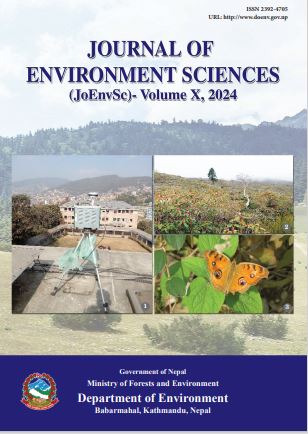Urban Agriculture in the Kathmandu Valley: Assessing Practices, Impacts, and Challenges for Sustainable Food Production and Well-being
DOI:
https://doi.org/10.3126/jes.v10i1.66989Keywords:
Challenges, food security, Kathmandu Valley, livelihood, sustainabilityAbstract
Agriculture, a pillar of human society, is undergoing dramatic changes as a result of global urbanization trends. Urban and peri-urban agriculture emerges as a critical method, providing numerous benefits such as increased food availability, poverty alleviation, and environmental mitigation. The Kathmandu Valley is the center of this study, which investigates the status and impact of urban agriculture on its population. It digs into topics including land availability, agricultural practices, food production, and health consequences. The study surveyed 230 families using a structured questionnaire method, indicating a male predominance (56%) and a diverse ethnic representation. The key findings show that 51% of respondents have access to growing areas, while 76% choose kitchen gardening. The biggest motivations are economic considerations (50%) and personal satisfaction (20%). Participants report cultivating 55% of their diet, which contributes to good health. Despite obstacles such as plant diseases (40%), 95% of respondents are satisfied with urban agriculture. This study sheds light on the potential of urban agriculture in solving Kathmandu’s difficulties and offers actionable recommendations for the sustainable implementation of urban agriculture in urban settings.




